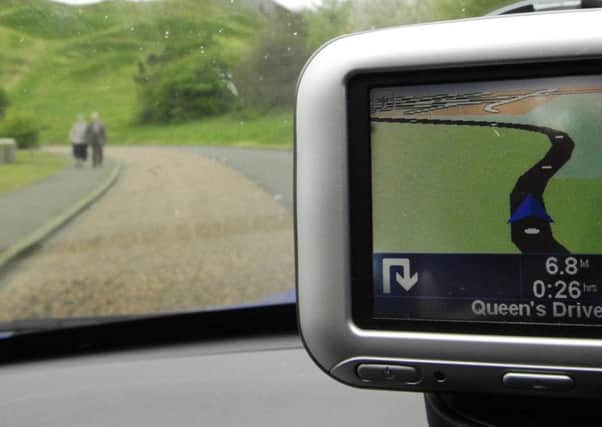Learner drivers must learn how to master sat navs to pass tests


Other changes announced by the Driver and Vehicle Standards Agency (DVSA) include doubling the length of independent driving to 20 minutes, and replacing manoeuvres such as reversing around a corner with more common scenarios like driving into a parking bay.
Motoring research charity RAC Foundation said it is the most significant shake up of the test since the written theory exam was introduced in 1996.
Advertisement
Hide AdAdvertisement
Hide AdTransport Minister Andrew Jones claimed the measures will help save lives.
He said: “We have some of the safest roads in the world but we are always looking to make them safer.
“These changes announced today will help reduce the number of people killed or injured on our roads and equip new drivers with the skills they need to use our roads safely.
“Ensuring the driving test is relevant in the 21st century, for example the introduction of sat navs, will go a long way towards doing this.”
The new driving test will be used from December 4.
Advertisement
Hide AdAdvertisement
Hide AdRoad accidents are the biggest killer of young people, accounting for over a quarter of all deaths of those aged between 15 and 19.
DVSA chief executive Gareth Llewellyn said: “DVSA’s priority is to help you through a lifetime of safe driving.
“Making sure the driving test better assesses a driver’s ability to drive safely and independently is part of our strategy to help you stay safe on Britain’s roads.
“It’s vital that the driving test keeps up to date with new vehicle technology and the areas where new drivers face the greatest risk once they’ve passed their test.”
Advertisement
Hide AdAdvertisement
Hide AdAround half of all car drivers own a sat nav and 70% of respondents to a public consultation supported the DVSA’s desire for drivers to be trained to use them safely.
Reducing the focus on slow speed manoeuvres in quiet roads will allow examiners to better assess the ability of learners to drive safely in busier areas, where new drivers have the most crashes, the DVSA said.
Motoring groups welcomed the changes, which have been trialled for two years.
RAC Foundation director Steve Gooding said they will mean candidates will “undergo a far more realistic assessment of their readiness to take to the road unsupervised”.
Advertisement
Hide AdAdvertisement
Hide AdHe went on: “Much has changed since the first driving test was taken in 1935, and it must be right that the test evolves, just as the cars we drive are themselves changing to incorporate ever more driver assist technology such as inbuilt sat nav systems.
“Novice drivers need to demonstrate the right skills and driving style to cope with the new environment.”
AA president Edmund King believes the new test can help produce “better, safer motorists”.
He continued: “We know that new drivers are a higher risk on the roads, therefore we need to better prepare them for real-world driving.
Advertisement
Hide AdAdvertisement
Hide Ad“These changes will test drivers in a more realistic manner which is essential to improving their safety once their L plates are removed.”
‘Competency tests’ were first introduced in 1934 but were suspended in 1939 for seven years due to the Second World War.